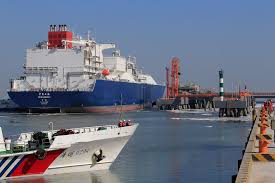
The Federal Government has commenced the process of placing a ban on importation of certain categories of vessels into Nigeria by 2022 as part of efforts to encourage local participation in shipbuilding.
The Director-General of Nigerian Maritime Administration and Safety Agency (NIMASA), Dakuku Peterside, who disclosed this to journalists in Lagos, urged Nigerians firms to look into various financing options and go into a joint venture on areas that they are lacking capacity.
He said the agency is vigorously pursuing the Cabotage Waiver Cessation Plan, and its currently engaging welders, aluminum and production firms among others to prepare them for their roles in vessel building.
He said the agency is currently collaborating with the Nigerian Content Development and Monitoring Board (NCDMB) to have a joint audit of vessels in the industry, while they pursue the five-year vessel demand forecast.
“The central plan is to empower Nigerians for greater participation in maritime trade. The law seeks to achieve that goal through four key pillars, namely, ensuring that vessels that operate in our coastal waters within the country’s territory are built in Nigeria, owned by Nigerians, manned by Nigerians, and registered in Nigeria.
“It was in an attempt to arrest the seeming drift that NIMASA came up with a five-year strategic plan, beginning from 2021, to end in stages the grant of Cabotage waiver. The winding down process is phased to avoid major disruptions to the Cabotage trade. The plan is to achieve the key objectives of the Cabotage Act in terms of in-country construction, ownership, manning, and flagging of ships engaged in coastal trade,” he added.
According to him, the process of bringing the grant of Cabotage waiver to a gradual end has already begun, with the Agency launching a renewed effort to implement the provisions of the Cabotage Act, which, he said, followed a series of engagements with stakeholders.
NIMASA has launched a five-year Cabotage cessation plan beginning 2021, aimed at ending the grant of Cabotage waivers and ensuring full implementation of the Coastal and Inland Shipping (Cabotage) Act 2003, which came into force in 2004.
Dakuku said the new cabotage regime had started making impact. According to him, “There has been an increase in the number of wholly-owned Nigerian vessels on the Nigerian Cabotage register. The 2018 half year result showed that 125 vessels were registered, representing a 33 per cent increase when compared with the 94 registered in the corresponding period in 2017. Currently, there are more than 200 vessels captured in the Cabotage register.
“Also, about 68 per cent of vessels trading within the country’s maritime space are Nigerian-flagged,” he said.
